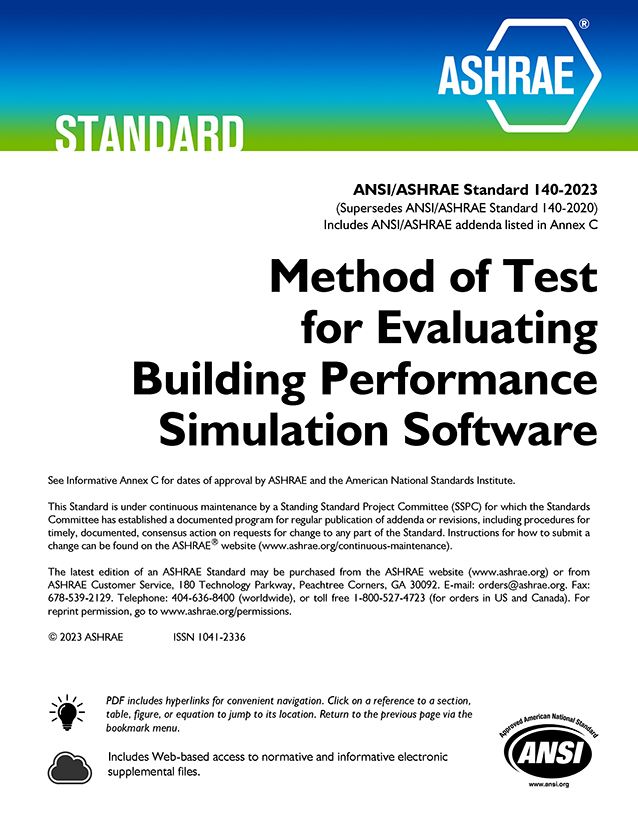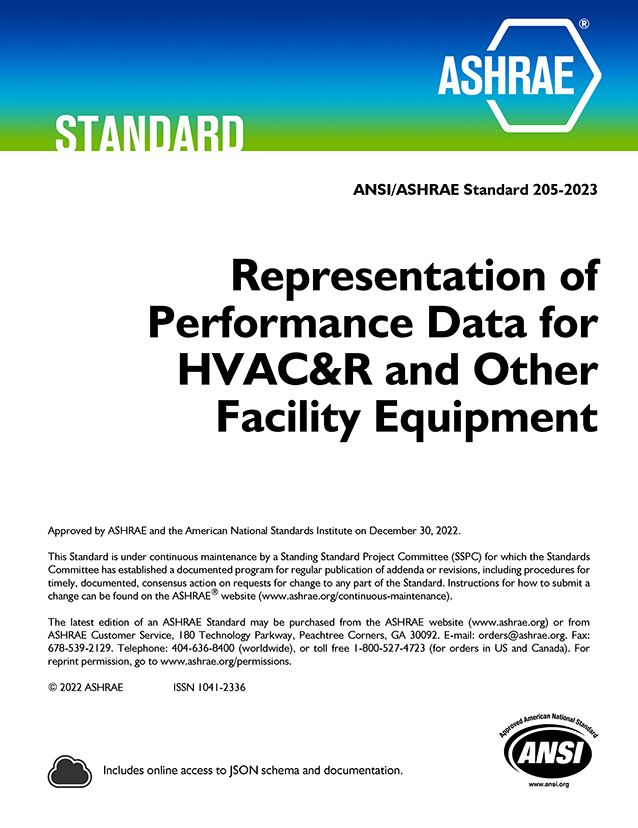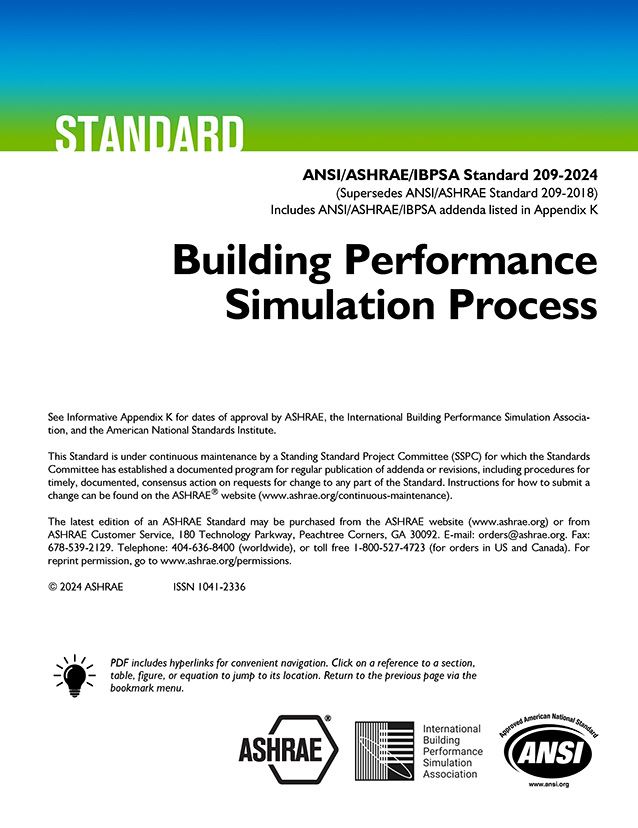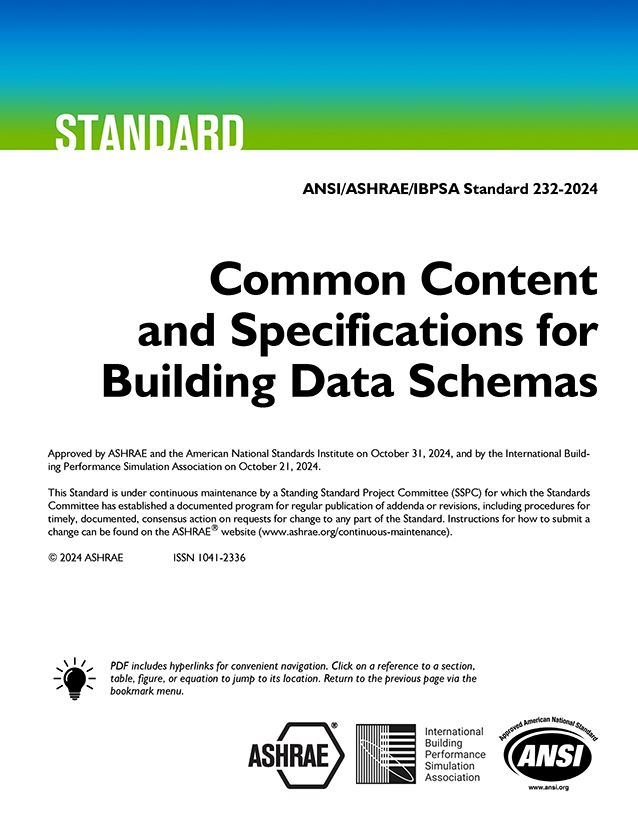ASHRAE/IBPSA Building Energy Simulation and Performance Modeling Resources
Index
140 | 205 | 209 | 232 | Other Resources
ANSI/ASHRAE Standard 140, Method of Test for Evaluating Building Performance Simulation Software

Standard 140 specifies a method of test for evaluating the technical capabilities and applicability of software used in calculating the thermal performance of buildings and their HVAC systems. These test procedures can be used to identify and diagnose predictive differences from building performance simulation software that may be caused by algorithmic differences, modeling limitations, faulty coding, inadequate documentation, or input errors; the procedures can also be used to evaluate the acceptability of software.
The revised 2023 edition of Standard 140 includes all the test cases of Standard 140-2020 and adds a new test suite that evaluates a software's ability to read and interpret standard format weather data. It also introduces acceptance criteria consisting of quantified acceptable results ranges for selected test cases; these criteria enhance previous qualitative guidance for comparing tested software results with other software and analytical verification results. In addition, the standard was reorganized to facilitate citing current test suites and adding future test suites. The 2023 edition includes online access to electronic supporting files.
Purchase
ANSI/ASHRAE Standard 205, Representation of Performance Data for HVAC&R and Other Facility Equipment

Standard 205 defines common data models and serialization formats for facility equipment performance data, allowing automated exchange among data sources (manufacturers), simulation models, and other engineering applications.
The main body of the standard provides rules and definitions used for generating representation specifications, including data groups that are common to all representation specifications, requirements for the structure of a representation specification, common definitions such as abbreviations, and informative material. This portion of the main body can be viewed as a meta-standard in that it specifies how to produce a representation specification.
The Standard 205 JSON schema (with online access) provides a machine-processable equivalent statement of the data model, allowing automated reading, writing, and validation of data files.
Purchase
ANSI/ASHRAE/IBPSA Standard 209, Building Performance Simulation Process

Standard 209 describes a methodology to apply building energy modeling to the design. The standard was created to define reliable and consistent procedures that advance the use of timely energy modeling to quantify the impact of design decisions at the point in time at which they are being made.
The standard defines general modeling requirements coupled with eleven modeling cycles, each with specific modeling goals that align with distinct phases of the design, construction, or operation process. Each modeling cycle is an extension of the general modeling requirements, which represents a best-practices approach for using modeling to inform design.
The 2024 edition of the standard includes allows for greater inclusion of qualified modelers; revises terminology and expands the title, purpose, and scope; adds new informative appendices for predictive energy modeling, guidance in design, future climate analysis, and level of detail for model inputs; revises several Modeling Cycles; and updates general requirements.
PURCHASE
ANSI/ASHRAE/IBPSA Standard 232, Common Content and Specifications for Building Data Schemas

Standard 232 provides a standard method for designing and documenting data models that are included in other standards.
The standard defines the structures, conventions, and formats for data models based on schemas such as XML or JSON. It is designed to be schema format agnostic and describes the content in a generic fashion.
The first part of the standard describes how to structure and format the data model. The next part describes how to document the data model in a human-readable format. Data groups that are common to all Standard 232 compliant data models, and data groups that are generic and universal for use in other data models, are described. Finally, informative naming guidelines and examples are included.
This standard is not intended for semantic schemas.
PURCHASE
Other Building Energy Simulation and Performance Modeling Resources
Also Available